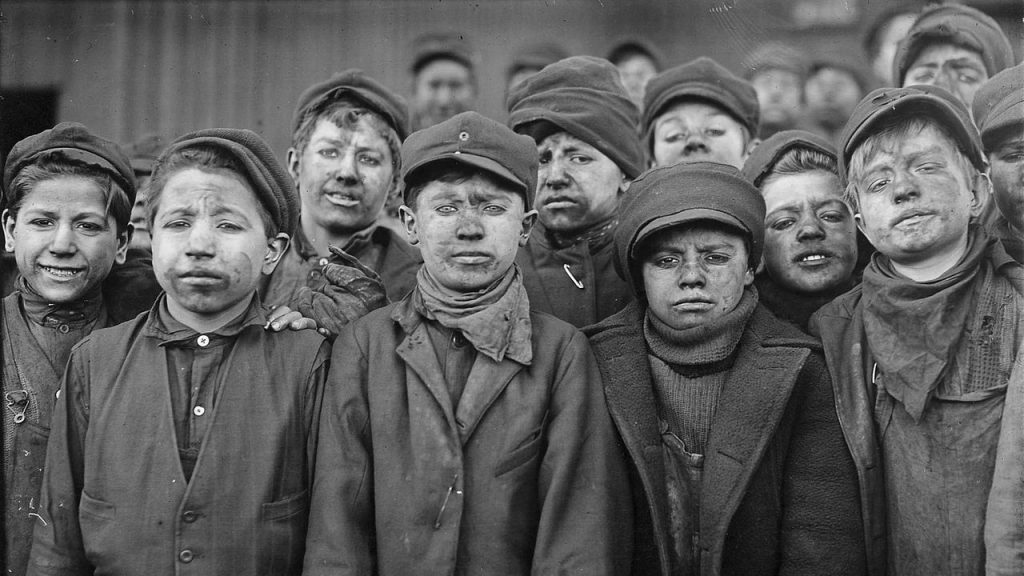
Kentucky seeks to remove child labor restrictions
By Milo Stevens.
On February 22, the Kentucky House of Representatives voted 60-36 to send a bill to the state Senate which would remove restrictions on the number of hours and types of work which can be performed by children under the age of 18.
The number of working hours allowed in Kentucky is already absurdly high. Currently, 16- and 17-year-olds are legally allowed to work up to six hours on a designated school day, with the limit increasing to eight hours on a non-school day. They are allowed to work a total of 30 hours per week, or 32.5 hours with parental consent, as long as they maintain at least a 2.0 grade point average.
House Bill (HB) 255 seeks to remove these restrictions. Through vague language, it will allow for 16- and 17-year-olds to be scheduled for an unlimited number of hours each week, even during the school year, opening the door for employers to schedule these teens for late or overnight shifts and even during school hours.

The bill is part of the effort by the American ruling class to turn back the clock to the time when American capitalism was built through the use of child labor and horrendous working conditions in factories, mills and mines. Continuously promoting the false notion that “nobody wants to work any more,” the ruling class is stepping up systematic attacks upon the younger generations, who have already shown that they are more militant and increasingly hostile to capitalism.

Proponents of HB 255 claim that it will bring the state into alignment with federal regulations that are already less restrictive for minors in this age range. In fact, the bill goes a step further, allowing some minors, even under the age of 16, to work in more hazardous occupations that are prohibited by current state and federal laws, such as meat processing plants, the logging and sawmill industry, manufacturing, and more.
The bill also seeks to remove the Workplace Standards Commissioner. This is a state position responsible for regulating labor laws, with the authority to impose further regulations on top of what is listed by the federal Secretary of Labor. Effectively, the bill would block the state from referencing federal law in its enforcement.
Workplace exploitation of children is not new for Kentucky. In mid-October 2023, the Department of Labor (DOL) released a report revealing that one 11-year-old and one 13-year-old worked at a Win.IT America Inc. warehouse in Hebron, Kentucky for months, and for “more hours than legally allowed”.
One child was employed to operate a forklift, a hazardous occupation. The other child was reported working to pick orders in the warehouse.
The scourge of child labor extends past the borders of Kentucky, to the whole of the US. In its recent child labor report for the 2023 fiscal year, the Labor Department found an estimated 5,800 minors were employed in violation of the law—an 88 percent increase from 2019. The average number of minors per violation has also dramatically increased, from around 2 per violation in 2017 to 6 in 2023.
Enforcement of the law is largely toothless. For the most part, the Labor Department has no response to the increased child labor violations other than ordering companies to go through mandatory compliance training and charging them with civil money penalties. In this respect, the federal government already has less capacity to enforce its own labor standards than the limited capacity of the states themselves.
On average in 2023, companies were charged a mere $1,400 per minor employed in violation. These trivial fines and penalties for breaking child labor regulations have become the norm. Companies willingly and quickly pay these fines as part of the “cost in doing business,” and rake in higher profits through sweatshop methods of exploitation.
Outside of the US, many companies make profits through the exploitation of child labor in sweatshops. According to a UNICEF/ILO joint publication, 160 million children were estimated to have worked worldwide in 2020—an increase of 8.4 million children since 2016. With state laws dismantling restrictions on child labor, the American ruling class is simply bringing these methods of hyper-exploitation back home.
Republican Representative Phillip Pratt, sponsor of HB 255, made a revealing statement as he motivated the bill on the House floor. “Our current statutes and regulations unnecessarily restrict the number of hours needed to work,” he declared, “often preventing them from seeking an opportunity to help them pay for college, learn new skills and prepare for the future”.
What future is the increase in working hours preparing young people for?
Research conducted by the National Library of Medicine demonstrates that teens “who spent long hours in jobs were more likely to drop out of high school than those who worked moderate hours or did not work at all.”
Any increase in weekly work hours for teens will add to the already 19,000 minors aged 16 to 19 years old who are not in school. For decades, Kentucky lagged behind the national high school graduation average. After sustained efforts, the state saw its graduation rate rise to 91 percent. Now the ruling class is deliberately destroying what limited improvements have been made to living conditions and educational outcomes for the working class.
In particular, the change is an attack on those who come from low-income, poverty-stricken homes, and children of immigrants, all of whom are compelled to seek employment in order to supplement the income of their family.
There is a national movement aimed at eroding child labor laws. Recently, Florida lawmakers passed a similar bill, moving it to their state senate, to remove hourly restrictions on 16- and 17-year-olds and eliminate the requirement of meal and rest breaks. Missouri and West Virginia are seeking to eliminate the requirement of work permits for minors, with Georgia going further, to allow 14-year-olds to do landscaping work, which by federal law is considered a hazardous field of employment due to the operation of mechanical equipment.
However, this is not limited to right-wing Republican strongholds in the southern states. Indiana and New Jersey both have introduced bills to extend the number of work hours regardless of whether school is in session or not.
What is propelling these attacks upon the working class in Kentucky and throughout the US is an attempt to make workers pay for the growing crisis of American and world capitalism, in particular for the astronomical sums laid out to bail out Wall Street and for the military.
Social infrastructure, wages and conditions and democratic rights are on the chopping block. The state of Kentucky alone has seen a wave of such legislation since the start of 2024, introduced by Republicans working closely with national right-wing lobbying groups and think tanks but encountering little resistance from the Democratic establishment. Each proposed bill builds upon the other, seeking to prey upon the most vulnerable sections of the working class. All the while, Kentucky itself is seeing consecutive growth in revenue each year.
Passing through the House the same day as this bill, HB 367 seeks to restrict access to food assistance for thousands of low-income people in the state. Passing the Senate on February 27 by a 75-20 vote, HB 18 would allow landlords to deny people quality housing on the basis that they receive federal housing assistance, which would affect 34,000 Kentucky households. Meanwhile, HB 5, an effort to criminalize homelessness and increase punishments for various criminal offenses, moves forward in the Senate with minimal opposition from the Democrats.
[This article was originally published by the WSWS here on March 04, 2024]

